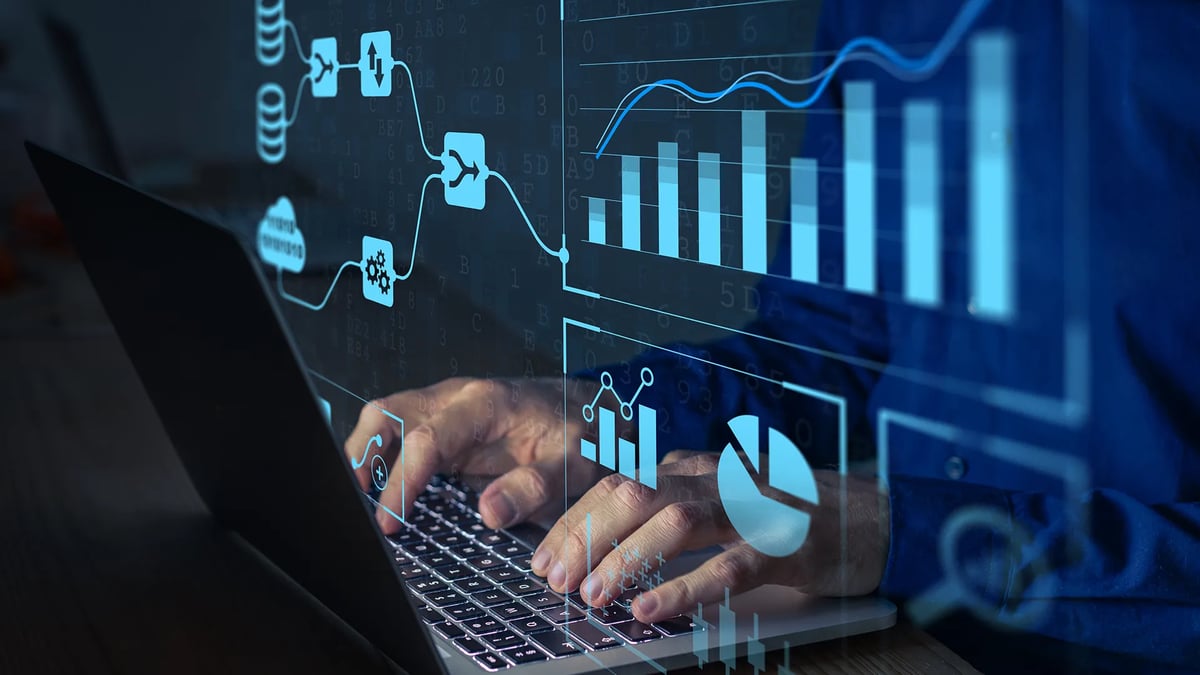Business Critical Systems
To achieve your strategic goals and objectives, it's crucial to ensure that your business functions smoothly and efficiently. This requires implementing and maintaining critical business systems, including essential applications, tools, infrastructure, and processes. Our Next-Generation Vulnerability Management Platform can help you reinforce the core operational structures of your business, proactively securing and optimizing them for sustained productivity and success, without any disruptions.



Understanding Risks Associated with Confidential Data Access
Access to highly confidential and classified data represents a potential gateway to a host of grave risks, including extortion, financial fraud, the loss of critical corporate information, and the unauthorized release of sensitive personal data. A security breach in this context not only jeopardizes a company's brand reputation but also constitutes a violation of the law. Under the stringent regulations of GDPR, companies are legally obligated to implement rigorous safeguards when handling personal data. Non-compliance can result in substantial penalties and fines.
Guarding Business Secrets from Unauthorized Access and Disruption
Unauthorized access has the potential to wreak havoc on production, disrupt crucial business processes, and compromise the security of vital business secrets. Revealing classified information, such as intellectual property, technical specifications, or distinctive production techniques, can inflict severe damage on a company. At a minimum, it can erode competitive advantages, while at its worst, it could jeopardize the very survival of the organization.
Guarding Against Breaches in CRM: Protecting Sensitive Client Data
Sales and CRM applications are pivotal in gathering, analyzing, and organizing intricate customer data, which is essential for efficient client management. However, a security breach could grant cybercriminals access to confidential client contracts and, in some cases, even credit card data. Such a breach jeopardizes sensitive information and poses a significant risk to an organization's reputation and financial stability, potentially resulting in substantial reputational damage and material loss.
Secure Your Business Critical Systems
Talk to a Security Expert
Securing Your Business Critical Systems
Prioritize Your Business Critical Applications
Your organization's assets should be assessed and categorized by rank of importance: mission critical, business critical, or low priority. Specific security, incident response, and backup plans should be created for each category to ensure continuity during disruptions.
Set Up Secure Access Rules
Limit and frequently change admin credentials to reduce unauthorized access risks. Implement session isolation to protect against credential theft and create a detailed log of privileged activities related to crucial applications.
Build Multiple Defense Layers Against Risks
To ensure that your organization is well-protected, it is crucial to build multiple layers of defense against risks. One key aspect is to minimize the risk of unauthorized individuals gaining access to your organization's data. Educating employees to identify and stop phishing attempts can help prevent minor threats from becoming significant breaches.
The Right Defense Against All Your Cyber Security Concerns



Find Vulnerabilities Across Your Technical Assets
Get complete visibility into your IT environment so you can identify potential vulnerabilities and take proactive steps to address them. With our comprehensive approach to cyber security, we provide you with everything you need to know to keep your business safe and secure. From identifying your most significant attack vectors to staying on top of the latest threats, we help protect your business.
Identify Over 100,000 Vulnerabilities
Perform regular scans to identify potential vulnerabilities and prioritize them based on their level of risk. Achieving complete visibility over your IT infrastructure has never been easier.
Never Worry Again with Complete Visibility
Discover, assess, and harden your environment against digital risks by contextualizing your attack surface coverage across your networks and endpoints.
Discover & Remediate Weaknesses Where You Are the Most Vulnerable
Protecting your web applications has never been easier. With our Web Application Security service, you can easily scan your web applications and APIs for vulnerabilities and ensure OWASP Top 10 coverage.
Robust Protection of Web Applications & API
Sleep soundly knowing that your applications are protected against the latest threats. Our advanced technology detects a wide range of misconfigured and vulnerable web applications and APIs, automatically identifying web servers, programming languages, and databases.
Detect Vulnerabilities Early & Mitigate Risks
Bring critical risks to the forefront, ensuring that you're protected against potential security breaches. Stay one step ahead of the game with our cutting-edge web application scanner.
Your Biggest Security Risks Start With An Email
Equip your employees with the knowledge and tools they need to identify and respond to phishing attempts and other email-based threats. Educate people as individuals and focus your training efforts where needed most; you can drastically reduce the risk of successful attacks.
Empower Your Employees & Boost Security
Strengthen your overall security and keep your business safe by providing your employees with the tools and expertise to identify and respond to threats.
Keep Your Business Safe with Education
Reduce the risk of data breaches and financial losses. Protect your business and keep your sensitive data safe from cybercriminals by regularly educating your employees about cyber security best practices.
See For Yourself
Try Our Platform for Free Today!
See the Difference a Next-Gen Vulnerability Management Platform Makes
From local government to industry-leading retailers, discover how Holm Security helps solve cyber security problems.
Safeguard Your Business from Cyberattacks
Extend Visibility
Know what you're up against. We can help you identify your IT system's weak points, categorize the assets that are vulnerable, and pinpoint the most likely threats. This knowledge will help you take action to protect your business proactively.
Prioritize Action
Identifying risks is just the first step; you need to act on them. We can help you develop a clear action plan that prioritizes your actions based on the level of threat, potential impact, and resources.
Communicate Risk
Don't keep cyber security risks a secret - communication is key. Get a clear view of your business's cyber risk with Holm Security. Our platform provides security executives and business leaders with centralized and business-aligned insights, including actionable insights into your overall cyber risk.
Learn More about Business Critical Systems
What Are Critical Business Systems?
Critical business systems refer to essential computer-based applications, hardware, and software that are crucial for the daily operations and functions of a business. These systems are indispensable, and their failure could result in significant financial loss, operational disruptions, or damage to the company’s reputation.
What Types of Business Critical Systems Are There?
How Do You Know If A System Is Business Critical?
To determine if a system is critical for a business, you need to assess its impact on operations, finances, and customer satisfaction, as well as its compliance requirements, data sensitivity, and integration with other systems. If the system's unavailability affects daily operations significantly, it is operationally impactful. Evaluating whether operations can continue without the system and for how long is essential. Financial impact is another critical consideration. It is financially critical if the system's unavailability affects revenue generation or financial reporting. Customer impact is also vital, especially for systems that play a significant role in customer interaction, service delivery, or support. Compliance with legal and regulatory standards is another crucial factor.
Systems that handle sensitive or confidential information, such as customer data or intellectual property, are typically critical because of the high risks associated with data breaches and leaks. It would help if you also considered the level of dependency and integration of the system with other processes and procedures within the organization. A highly integrated system, upon which many other systems depend, is often critical, and the lack of alternative or backup systems that can take over in case of a failure is a clear indicator of the system's criticality. The system will likely be critical if recovery time after a failure is lengthy and operational disruption is significant during this period.






